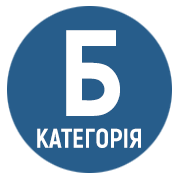IDENTITY AS A PROBLEM: NEW CONTENTS AND ALTERNATIVES?
DOI:
https://doi.org/10.24919/2522-4700.41.6Keywords:
personal identity, posthuman, “last human”, “end of history”, transhumanism, “artificial intelligence”Abstract
Purpose. The article comprehends the antagonism of external requests and internal personal expectations of the modern individual. The non-coincidence of these spheres of human existence is the main reason for the question of “personal identity”, its content, which makes it possible to predict the possible future of mankind. Methodology. The article uses a method of comparison, which allows us to trace the sequence and objectivity of the semantic presentation of the material, as well as an analytical method that focuses on a meaningful understanding of the realities that are relevant today. Scientific novelty. In the world of open borders, where the culture of each nation has its unconditional value, because, one way or another, it serves as a basis for the formation of personal identity of each person, the problem is precisely the definition of this very identity, its role in human activity, it can be attributed to the essence of this identity. The ambiguity of understanding and approaches to this concept leads to the volatility of the human situation in the world, and the rejection of integrity, which is the basis of any personality, may eventually lead to the erosion (or even disappearance) of the concept of “Human”. Conclusions. Despite the vast amount of diverse knowledge about human and his activities, accumulated throughout human history, science today knows about the human essence as little as in the beginning. The question of personal identity and the crisis of this identity is undoubtedly one of the most relevant in modern intellectual debates, and there is no single vision or view of what this desired identity is. “Personal identity”, as an orientation towards integrity and integrity, is increasingly reduced to the myth of what a person has never had, but what he has always sought to obtain. Defining identity as a set of heterogeneous psychological properties and tendencies of a person, working in a balanced and single-vector way, which makes him more stable in the field of social demands, raises his own bar of stress, shows that man himself with his versatility seeks to simplify his own view. on itself, to abandon the search for “what is not and can not be”, and this is directly related to the classic question “to be or not to be” Human; it should be noted that this question has long passed from the theoretical sphere to the level of practice, which successfully changes not only the reality of man, but also irreversibly changed himself.
References
Ніцше Ф. Так казав Заратустра. Київ : Основи, 1993. С. 7–328.
Фукуяма Ф. Идентичность. Стремление к признанию и политика неприятия. 2019. URL: https://iknigi.net/avtor-frensis-fukuyama/178803-identichnost-frensis-fukuyama.html.
Харари Ю.Н. Homo Deus. 2018. URL: http://loveread.me/read_book.php?id=75853&p=1.
Харари Ю.Н. ХХІ урок для ХХІ века. 2019. URL: http://loveread.me/read_book.php?id=80945&p=1.
Bostrom N. How long before superintelligence? 1998. URL: https://www.nickbostrom.com/superintelligence.html.
Kurzweil, Ray. The Age of Spiritual Machines: When Computers Exceed Human Intelligence. 1999. London : Viking. URL: https://www.researchgate.net/publication/257162786_The_Age_of_Spiritual_Machines_When_Computers_Exceed_Human_Intelligence.
Mor, Max. On becoming posthuman. 1994. URL: https://secularhumanism.org/1994/10/on-becoming-posthuman/.
Olson, Eric T., “Personal Identity”. The Stanford Encyclopedia of Philosophy. 2019. URL: https://plato.stanford.edu/archives/fall2019/entries/identity-personal/>.
Jaron Lanier. The First Church of Robotics. The New York Times. 2010. URL : https://www.nytimes.com/2010/08/09/opinion/09lanier.html.


